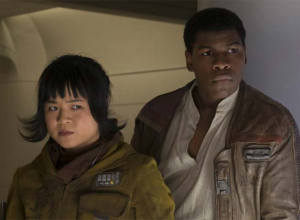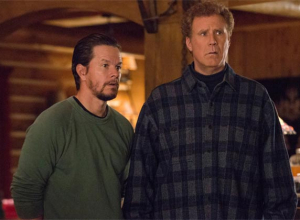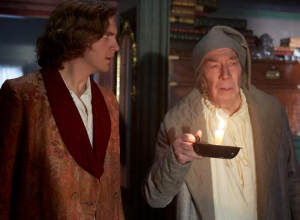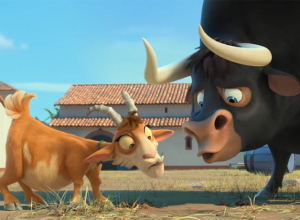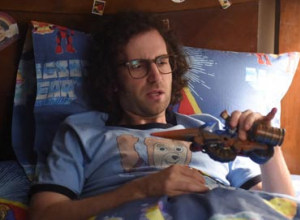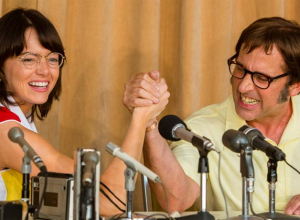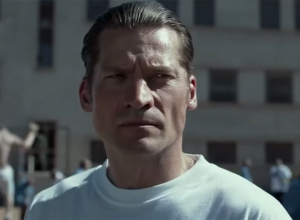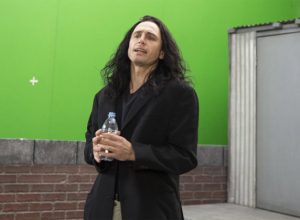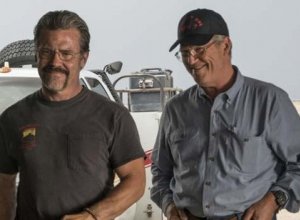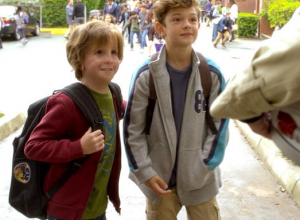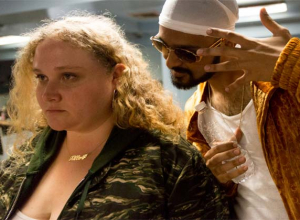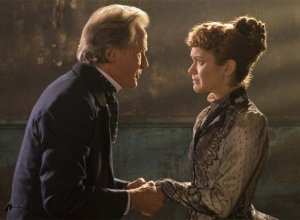Scarface Review
By Chris Barsanti

Pacino and producer Martin Bregman had a good idea in wanting to make an updated version of the original 1932 Scarface, which chronicled the rise and fall of a Prohibition-era Capone-like criminal overlord (screenwriter Ben Hecht was a Chicago journalist with a lot of intimate knowledge of Capone). Handing it over to director Brian De Palma (who had specialized mostly in psychosexual thrillers like Dressed to Kill and The Fury), and screenwriter Oliver Stone (whose credits included an Oscar for 1978's Midnight Express but also Conan the Barbarian), was a daring move. Stone did a lot of research for the screenplay, hanging out and doing coke with drug lords all over Latin America, and De Palma promised to bring a certain visual flair to the proceedings.
Scarface starts in pretty much the only place it could: Miami, circa 1980, the time of the Mariel boatlift, in which Castro emptied his jails and allowed them all to flee to America, just at the time that cocaine use was on the rise. Miami during the early 1980s became the closest modern analogy to Chicago during Prohibition, and it's into this free-for-all that the film drops Tony Montana, all snarl, hunger and tortured Cuban accent: "Fush you, mang."
Tony and his buddy Manuel Ray (Steven Bauer, who was at least born in Cuba, unlike pretty much all of the rest of the actors playing Cubans here) are low-level hoods who connive their way out of the refugee camp, but not before assassinating a Communist official exiled by Castro. This job gets Tony and Manuel an audition assignment for kingpin Frank Lopez (Robert Loggia, playing not Cuban so much as Robert Loggia with dark makeup), leading to the infamous scene where Tony and one of his friends has a bad run-in with some Columbians and a chainsaw. But Tony and Manuel pass with flying colors, and pretty soon they're Frank's best new employees, with flash cars and tacky suits; Tony starting to give the eye to Frank's girl, Elvira (Michelle Pfeiffer, cocaine-thin and mean as a snake).
Once Tony makes it to the top, with his sprawling, ugly mansion and mountains of cash and coke, the movie takes a serious turn for the worse. Pacino withdraws into himself as his character loses the ambitious hunger that propelled him this far. In a more complex film, his drunken "is this all there is?" speech at a fancy restaurant might have had some resonance, but here it's just babble from a morose buffoon. Things deteriorate further when the screenplay tries to give Tony a conscience in a scene where he refuses to kill a journalist informing on his Bolivian operation, because the man has his wife and kids with him. Of course, all this is just set-up for the blow-out climax in which swarms of gunmen storm Tony's mansion, dozens of them getting mowed down by his "lil' frien'", even as he's peppered with bullets but refusing to die; true gangster style.
The final bit of ludicrousness is the title at the end: "This film is dedicated to Howard Hawks and Ben Hecht." For a master of the tacky and obscene like De Palma to pretend any fealty to those practitioners of economy and smarts is nothing short of absurd. De Palma would have much better luck years later when he re-united with Pacino for the far-superior (but much less popular) crime epic Carlito's Way - his eye was sharper, and his sense for action and tension a hundred times more assured - but this one is just a mess, and not an enjoyable one. If Stone and De Palma could have embraced the story's campy roots and had more fun with it, instead of bloating it up to such gargantuan, self-important lengths, it could have been something worthwhile. All the classic gangsters like Muni, Cagney, and Robinson had a good old time playing psychotic villains, maybe these filmmakers should have allowed Pacino to do the same.
Universal's 20th anniversary two-disc DVD release has a good number of extras, though not as much as serious fans would like. The sound on the film itself is clear and loud, but the picture is not nearly as sharp as it could have been. There's about 20 minutes worth of deleted scenes, all of which were judiciously cut, but are worth watching anyway. The mini-documentaries on the making of the film look like they were just taken from an electronic press kit for the theatrical re-release; they're informative but not nearly as in-depth as they could have been. Most enjoyable is a hilarious short on how editors over the years have mangled the foul-mouthed film in order to make it passable on TV.
The new Platinum Edition DVD includes the same extras as the 20th anniversary set plus a newly updated audio track (with "replaced and remixed" sound effects). A making-of featurette on the new Scarface video game is of course also included. The Scarface Scorecard (which keeps track of the number of "f-bombs" and bullets fired at the bottom of the screen) is not to be missed.
She's got a lil' frien' of her own.
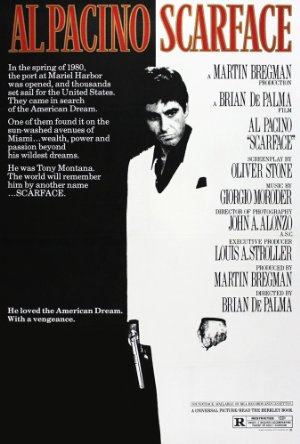
Facts and Figures
Year: 1983
Run time: 170 mins
In Theaters: Friday 9th December 1983
Box Office USA: $0.7M
Box Office Worldwide: $65.9M
Budget: $25M
Distributed by: Universal Films
Production compaines: Universal Pictures
Reviews
Contactmusic.com: 2.5 / 5
Rotten Tomatoes: 84%
Fresh: 54 Rotten: 10
IMDB: 8.3 / 10
Cast & Crew
Director: Brian De Palma
Producer: Martin Bregman
Screenwriter: Oliver Stone
Starring: Al Pacino as Tony Montana, Steven Bauer as Manny Ribera, Michelle Pfeiffer as Elvira Hancock, Mary Elizabeth Mastrantonio as Gina Montana, Robert Loggia as Frank Lopez, Miriam Colon as Mama Montana, F. Murray Abraham as Omar Suarez, Paul Shenar as Alejandro Sosa, Harris Yulin as Mel Bernstein, Ángel Salazar as Chi Chi, Arnaldo Santana as Ernie, Pepe Serna as Angel, Michael P. Moran as Nick The Pig, Al Israel as Hector The Toad, Dennis Holahan as Jerry The Banker, Mark Margolis as Alberto The Shadow, John Carter as Vic Phillips
Also starring: F Murray Abraham, Martin Bregman, Oliver Stone
